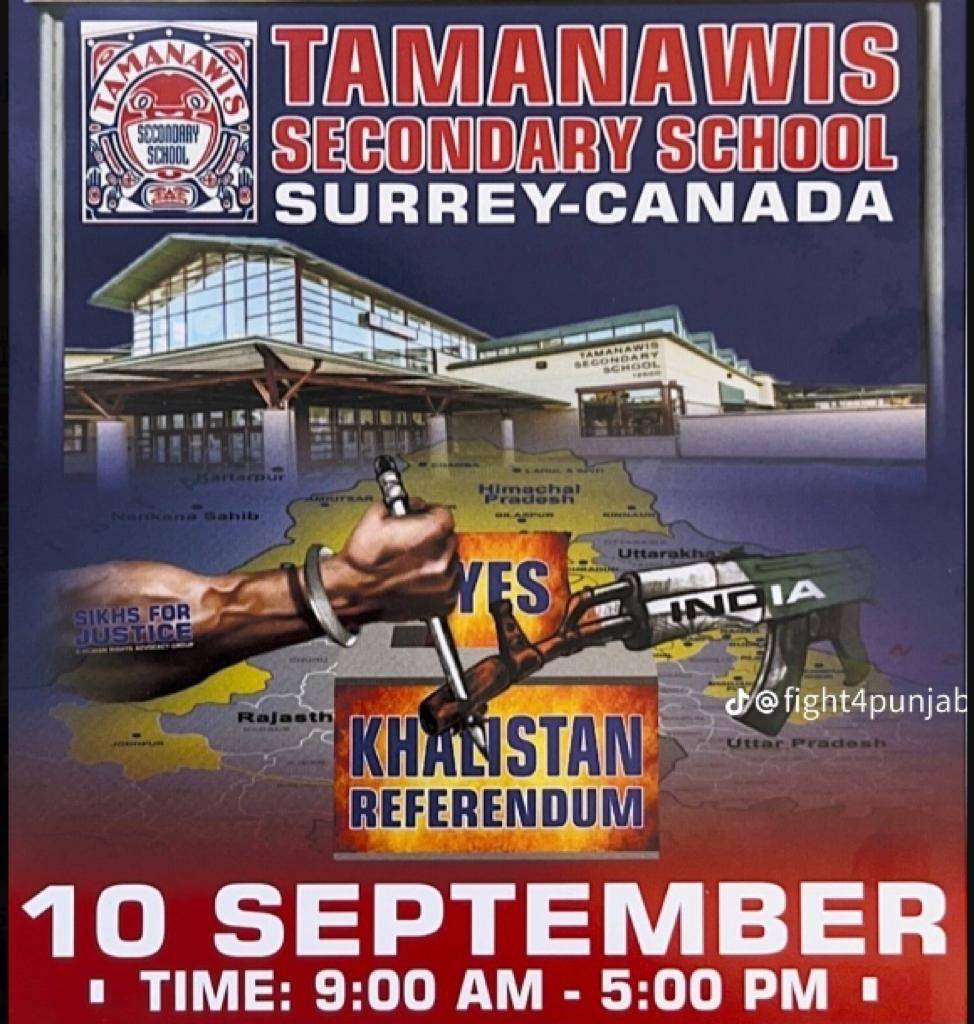AI Generated Summary
- The decision by the Surrey School Board, the City of Surrey, and the Provincial Government of BC to allow a “Khalistan Referendum” at Tamanawis Secondary School in Surrey is one such situation.
- Further deepening the wounds is the dedication of this referendum to Talwinder Singh Parmar, the mastermind behind the worst terrorist attack in Canadian history, claiming the lives of over 300 Canadians.
- If the Government of India or an Indian state government were to host a vote in its facilities on whether to break up Canada, how would Canada feel.
It’s a mark of a democracy’s health to engage in robust debate and to provide avenues for the voices of minorities. However, sometimes, the line between freedom of speech and the promotion of divisive, potentially harmful ideologies becomes perilously thin. The decision by the Surrey School Board, the City of Surrey, and the Provincial Government of BC to allow a “Khalistan Referendum” at Tamanawis Secondary School in Surrey is one such situation.

Firstly, and most critically, the event demonstrates an unsettling precedent: The use of Canadian governmental infrastructure to conduct a referendum with the objective of fragmenting another nation, India, in this case. The supporters and organizers of this event, some of whom have been accused of heinous terrorist activities in India, are leveraging our institutions to further their agenda. This move is not only diplomatically questionable but also tarnishes Canada’s global image. Are Canadian citizens comfortable with the government-supported spaces being used to attack the unity and integrity of another sovereign nation?
Further deepening the wounds is the dedication of this referendum to Talwinder Singh Parmar, the mastermind behind the worst terrorist attack in Canadian history, claiming the lives of over 300 Canadians. The mere idea of his posters adorning a place of learning, where young minds are molded, is abhorrent. It brings into question: Do the Surrey School Board, City of Surrey, and Provincial Government of BC expect the families of the Air India Victims to quietly accept this glaring insult? What lessons are we imparting to the children who will walk past these posters every day?
The inclusion of a poster depicting Tamanawis School alongside an AK 47 weapon serves as an alarming endorsement of gun violence. In a time when schools across the world are fighting against gun violence and its associated traumas, such a message is not just irresponsible but dangerous. What values are we instilling in our children when we blur the lines between education and the promotion of violence?
While democratic countries should respect the right to voice dissent and differences, promoting divisive agendas, and potentially inciting hate crimes and violence, cannot be tolerated. The justifications of a few potential votes pale in comparison to the grave consequences such actions might entail.
As we reflect upon these developments, a thought lingers.
If the Government of India or an Indian state government were to host a vote in its facilities on whether to break up Canada, how would Canada feel? Would that be acceptable to Canadian citizens?
It’s imperative to remember that actions and decisions, once taken, set lasting precedents. It’s time to reconsider hard whether one wants to be part of such a precedent.
The opinions expressed in this article are those of the author. They do not purport to reflect the opinions or views of Khalsa Vox or its members.




